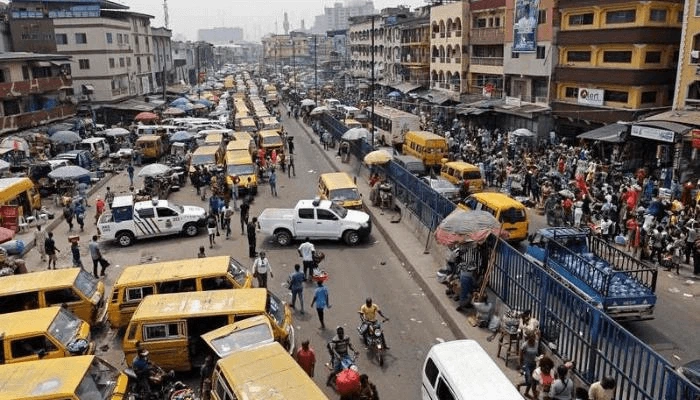Nigeria’s economic reform needs urgency

Often, Nigeria touts its population of over 220 million as a magnet for global investment. But the assumption that population size automatically translates to a robust market is deeply defective. The country’s repeated struggles to attract and retain investment point to deeper structural problems. Nigeria’s business environment remains one of the most challenging on the continent, troubled by complex regulations, policy inconsistency, inadequate infrastructure, high inflation, and foreign exchange volatility.
The high-profile exit of South African retail giant Shoprite from the Nigerian market in 2021 was more than just a business decision; it was a wake-up call. After 15 years in Nigeria, Shoprite cited currency devaluation, rising inflation, and operational difficulties as reasons for its withdrawal. In contrast, the company experienced growth in its South African market, with sales rising by 9.8 per cent and 7.5 per cent in the first and second halves of the year, respectively, even as its Nigerian sales contracted by nearly 6 per cent during the same periods.
This divergence reflects the core challenge. Nigeria’s business terrain is steep and rocky, even for multinationals with deep pockets.
“The epileptic national grid continues to force businesses to rely on costly diesel-powered generators, driving up operational expenses and undermining competitiveness.”
To be fair, Nigeria has not been entirely asleep at the wheel. But while regulatory reforms on paper suggest progress, real-life business owners continue to grapple with red tape, inefficient bureaucracy, and corruption. These hidden costs, coupled with unreliable electricity supply, insecurity, and unpredictable foreign exchange policy, have made Nigeria a difficult place to run a profitable enterprise.
Despite these obstacles, some companies have found ways to thrive.
Although the 2024 full-year results released recently by some companies, including banks, show a leap in profit after tax. These success stories, however, are the exception, not the rule. They reflect the resilience and ingenuity of businesses that have adapted to a volatile environment, not the strength or reliability of the business ecosystem itself. They operate within what can best be described as survival capitalism, a mode where adaptability replaces structural support and economic reforms.
Currency volatility remains one of the most pressing concerns for both local and foreign investors. Shoprite’s exit then was not an isolated consequence of poor retail performance but part of a broader trend among multinationals struggling with the naira’s persistent weakness. In 2023 alone, the naira depreciated by over 65 percent following the Central Bank of Nigeria’s (CBN) move to unify the exchange rates, a long-overdue but painful reform.
As of July 2025, the naira traded at around N1,500 to the US dollar on the official market, down from under N450 in early 2023. The result has been increased import costs, pricing distortions, and profit erosion for businesses dependent on imported inputs.
Inflation has compounded the pain. Headline inflation reached 34.2 percent in June 2025, with food inflation at a staggering 41 percent. This has eroded household purchasing power and dampened consumer demand, a major blow in a consumption-driven economy.
For Nigeria to truly harness the power of its demographic and geographic size, it must go beyond cosmetic reforms. A thriving market economy is not built on population numbers alone; it requires a conducive operating environment marked by regulatory clarity, infrastructure development, access to finance, and macroeconomic stability.
Nigeria must improve policy coordination and consistency. Businesses need to make long-term plans, and this requires predictability, not abrupt bans, policy reversals, or contradictory directives.
Moreover, the government must address the infrastructure deficit. Power, roads, logistics, and broadband connectivity are essential to running a business efficiently. The epileptic national grid continues to force businesses to rely on costly diesel-powered generators, driving up operational expenses and undermining competitiveness.
Also, Nigeria must tackle insecurity head-on. Banditry, kidnapping, and communal violence, particularly in key agricultural and industrial belts, continue to threaten investment and the movement of goods and people. The recent resurgence of attacks in the North-West and Middle Belt calls for renewed urgency in addressing national security.
More importantly, economic diversification must become more than a buzzword. Over 90 percent of Nigeria’s export earnings still come from crude oil, which is denominated in dollars. Any negative shock to oil prices places direct devaluation pressure on the naira. To stabilise the currency and make Nigeria more attractive to investors, the country must build value-added export sectors, such as agro-processing, manufacturing, and digital services, denominated in naira.
The past departure of some firms was not simply a failed business case; it was a verdict on Nigeria’s economic reality. While the country has immense potential, that promise will remain untapped unless systemic barriers to doing business are addressed. Nigeria does not lack entrepreneurs, consumers, or capital. What it lacks is a consistent, enabling environment in which all three can converge and thrive.
The Tinubu administration, which has already taken significant steps to unify exchange rates and remove fuel subsidies, must now move swiftly to improve the ease and cost of doing business. This includes tackling inflation, reducing the tax burden on SMEs, simplifying business registration, and deepening financial inclusion.
Nigeria’s large population will only translate into a large market when policies are aligned with productivity and when households have the purchasing power to consume. Until then, the idea of Nigeria as a business haven will remain more of a myth than a reality. The time for half-measures is over; only bold reforms will unlock the prosperity Nigeria desperately needs.
COURTESY: businessday

Post Comment